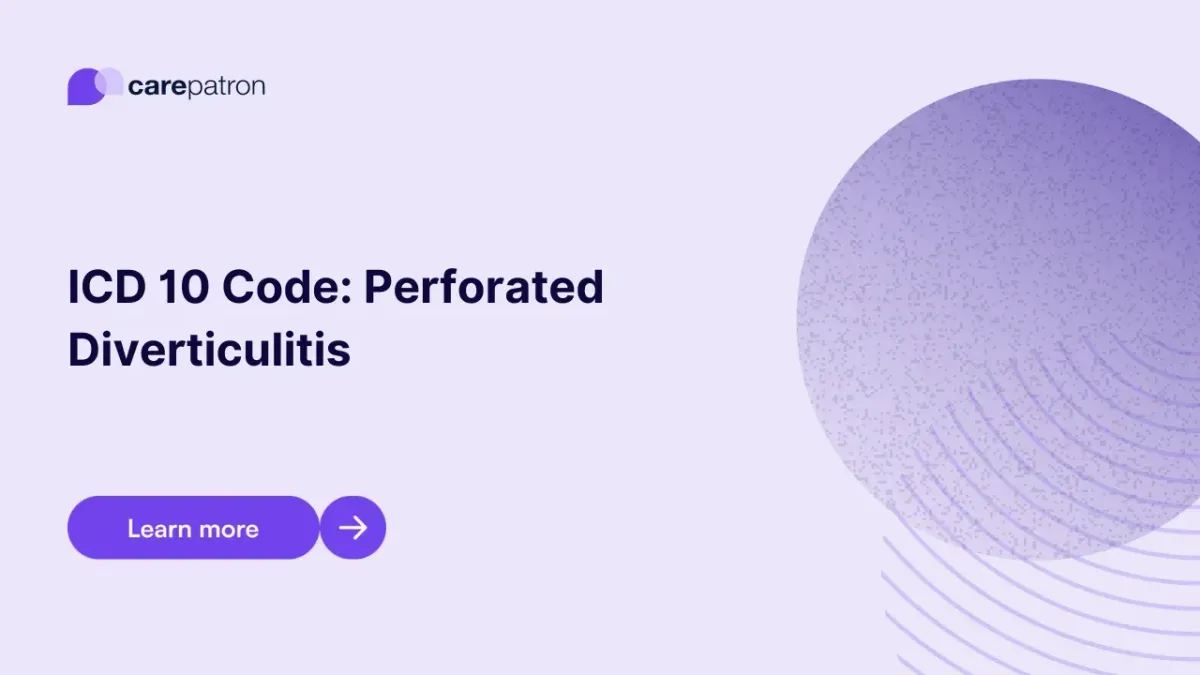
Perforated Diverticulitis ICD-10-CM Codes | 2025
Find valid ICD-10 codes for perforated diverticulitis, including bleeding/non-bleeding types, coding tips, and clinical details for accurate diagnosis.
Use Code
Commonly asked questions
Symptoms often include severe abdominal pain, fever, nausea, and a rapid heart rate. In advanced cases, patients may experience signs of peritonitis, such as abdominal rigidity and shock.
Diagnosis typically involves a physical exam, blood tests, and imaging studies like a CT scan to identify inflammation, abscesses, or perforations. A thorough medical history and symptom review also guide the diagnosis.
Treatment usually involves hospitalization with IV antibiotics, fluid replacement, and sometimes surgical intervention to remove the affected section of the colon. In severe cases, a temporary colostomy may be required.
EHR and practice management software
Get started for free
*No credit card required
Free
$0/usd
Unlimited clients
Telehealth
1GB of storage
Client portal text
Automated billing and online payments
